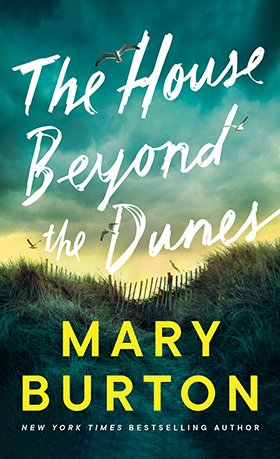
The House Beyond the Dunes

The House Beyond the Dunes
Buy it Now, Read it Sep 9, 2023
Amazon | Barnes & Noble | Books A Million | Indiebound
A tragic accident or something more sinister? A woman’s buried memories put her life at risk in a novel of shattering psychological suspense by New York Times bestselling author Mary Burton.
Lane McCord wakes up in a hospital having survived a near-fatal fall at a North Carolina beach cottage. Her boyfriend, Kyle, wasn’t so lucky. A senseless tragedy on their first romantic getaway. All Lane remembers is lying at the bottom of the stairs in Kyle’s pooling blood.
Confused and grieving, Lane plans to return to the cottage, collect her personal belongings, and get out. Until a winter rainstorm leaves her stranded and vulnerable, but not alone. A concerned neighbor, who claims he heard a violent argument before the accident, has come out of the storm. So has a suspicious detective on the trail of a missing woman, whose diary deepens the mystery—and raises more questions that fill Lane with dread.
How well did she know Kyle? How well does she know herself? What really happened at the cottage on the beach? And when the answers come, who can Lane trust to get out of this waking nightmare alive?
The House Beyond the Dunes Excerpt
Chapter One
Lane
Friday, December 29, 2023
Norfolk, Virginia
7:00 p.m.
The fall began with a small slip on a marble step. Any other time, I’d have caught myself, adjusted, and found a way to hold steady. But not this time.
That misstep sent both of us tumbling down twenty-one stairs. Us. Kyle and I weren’t really an us. We’d known each other three and a half weeks, technically twenty-five days.
He’d first approached me in the coffee shop I manage. I was refilling the whole milk and creamer containers at the self-serve station when he slid in beside me. The soft scent of his aftershave snagged my attention. Sandalwood. He said something charming. I thought he was talking to someone else. But his gaze pinned me. I was flattered, and even blushed.
Almost immediately, the floodgates between us opened. He began showering me with enchanting texts, fragrant flowers, and mouthwatering kisses. He didn’t push sex, and I was wooed by his patience. In a few short weeks, we were on the path to something.
This weekend was supposed to be our big, romantic beach getaway. Our first sleepover. We were going to ring in the New Year alone, wrapped in each other’s arms. A big step toward figuring out if this thing between us might be real. So much anticipation. Excitement. I’ve no free time between school and managing the coffee shop, so for Kyle to have lured me away for a long weekend was saying something.
However, within an hour of arriving at his glittering North Carolina cottage overlooking the dunes of the northern Outer Banks and the Atlantic Ocean, we fell. The weight of our bodies sent us hurtling through the air so fast, adrenaline didn’t catch up until the last microsecond, when we hit the marble floor.
Now I’m in the hospital, my left hip is banged up and bruised, and my body is so stiff, it’s hard to turn my head to the right. I feel as if I’ve gone three rounds with a boxer. But my injuries aren’t critical. I’ll heal.
Kyle wasn’t so lucky.
He’s dead.
“You’re fortunate to be alive.” Dr. Jackson sounds cheerful, a little too upbeat, as he closes the curtain to my room. He’s tall, lean, and keeps his hair cut short. Dark circles smudge under his eyes. Emergency room sounds swirl around us. Gurneys. Machines beeping. Hushed conversations.
I shift, doing my best to sit up. The muscles in my gut and along my ribs scream in protest. The guy I liked is dead, and I can barely move without my body crying. I was supposed to be sipping wine while sitting in a hot tub with Kyle, making out, and taking another step toward us. “Yes, lucky.”
Dr. Jackson holds a light up to my eyes and waves it over my pupils. I stiffen. “Just look at the light.”
“How long have I been here?” I ask.
“About six hours.”
“How did I get here?”
“You were airlifted from the Outer Banks to Norfolk.”
The Outer Banks is a 170-mile barrier island chain, and Kyle’s house is in the northernmost section, tucked against the Virginia line.
As the crow flies, Kyle’s cottage is thirty minutes from Norfolk, where I live. But there’s no quick way to get from here to there. This remote stretch of land requires a trip around Norfolk’s beltway, followed by a few secondary highways in North Carolina, crossing the three-mile-long Wright Memorial Bridge, and then another twenty-mile drive north. All that travel is rewarded with an eleven-mile four-wheel drive on an untamed beach. Basically, over the river and through the woods takes two and a half hours.
Memories of the trip and the house are vague. My mind is trapped in a loop, replaying the crack of Kyle’s skull on marble, the pool of his blood oozing toward me, and the pain rocketing through my body.
I’m only vaguely aware of a man trying to rouse me and then being placed on a stretcher. I was out cold during the med flight ride to Norfolk. Most of this entire day tangles like a bad dream.
“Kyle is really dead?” I ask.
“Yes,” Dr. Jackson says. “He was pronounced dead at the scene.”
I brace for a rush of sadness. Grief, despondency, and sorrow are all natural responses for someone who’s lost the other half of a potential us.
Kyle and I weren’t married or even sleeping together, but we’d had a connection. I didn’t fully understand what tethered us so tightly, but it had been very real. Yet no emotions charge or encircle me. There’s only numbness. Must be shock.
“Are you taking any medications?” Dr. Jackson asks.
“For sleepwalking. I can’t remember the name.”
“That might explain the drugs we found in your system.”
“What drugs?”
“A sedative.”
“I don’t take anything other than the pills to hold off the sleepwalking.”
“Okay.” He regards me and then says, “The head scan tells me you suffered no damage to your brain or spine, which is excellent news. But I’d like to do an MRI of your left hip. X-rays tell me it’s not broken, but I suspect you’ve torn muscles or tendons, or maybe separated the labrum.”
My head is good. A win. “What’s a labrum?”
Dr. Jackson tucks his penlight in his front pocket and runs calloused hands up and down my neck. I brace. “It’s the cartilage cushioning the hip joint. Any pain in the neck?”
“A little stiff, but okay.” I angle my neck away from him and feel the muscles resisting. “The hip aches.”
Dr. Jackson nods. “Then we should do the MRI.”
I look around the curtained-off emergency room cubicle. How much is all this going to cost me? “MRIs are expensive.”
“Clear images give me a good look inside your body. You don’t want to risk more damage.”
As I shift, the back folds of my hospital gown open, and a cold breeze fingers up my spine. I can live with a stiff hip, which in all likelihood just needs rest. “My head is good, right?”
Dr. Jackson sighs. “Yes. But the hip correlates with long-term mobility.”
“I’ll rest it. See how it goes. If it’s an issue, I’ll call you. When can I leave the hospital? I’ll take it easy. Take aspirin. Ice, heat, ice. Chill out.” This place is suffocating, and I want to go home, where I’ll try not to think about the fall, the sound of Kyle’s head exploding, or sticky, warm blood.
Dr. Jackson shakes his head. “I’d like to admit you overnight for observation.”
“No,” I insist. “I’d rather be in my own bed. It’s paid for.”
His brow furrows. “Do you have insurance?”
“I do if you can call it that. My plan is stitched together with high copays and ridiculous deductibles. I’ll take a pass on the tests and the overnight.”
“I don’t advise this, Ms. McCord,” Dr. Jackson says carefully.
“I get it. Liability. Lawyers. I’ll sign whatever I need to.” I shift, wince. Seven hours ago, Kyle and I were driving up the beach toward his house. The day was warm, the sun bright, and the ocean calm. I was nervous, in an excited kind of way.
Now Kyle’s blood smears my arm. “Are you sure about Kyle?”
“Yes. I’m sorry.” He clears his throat. “What do you remember?”
“Arriving at the cottage.” It’s a stunning place and unexpectedly elegant on such a remote stretch of beach. Vaulted ceilings, large plush couches, floor-to-ceiling windows overlooking the dunes and ocean, white granite kitchen counters, dazzling stainless-steel appliances, and modern art on the walls. Fresh red roses filled a crystal vase on the living room coffee table. I remember almost teasing it was a no-one-can-hear-you-scream kind of place but thought better of the joke. My dark sense of humor is best reserved for people who’ve known me more than three and a half weeks.
“The EMTs responded to the house at one fifteen p.m. today. When did you arrive at the cottage?”
“About noon. I don’t remember much after we arrived.”
Doubts crease his brow. “It’s okay. Those memories should come back in time.”
I know better than anyone, the power of positive thinking is faulty at best. “I want to leave. Where are my clothes, purse, and phone?”
“I really would like you to stay overnight for observation.”
“No.” Panic constricts my chest. “I hate hospitals.”
“Most people do.”
I sit up straighter, wince as my hip protests. My head is clear. “I’ll call if something goes wrong.”
Dr. Jackson’s frown deepens as he shakes his head. “I’m going to hold you to that, Lane.”
I cross my chest. Hope not to die. “Promise.”
“Any signs of dizziness, nausea, or headaches, call me. No running, cycling, or jumping. If you don’t heed my advice, you’ll really screw up your hip and be in surgery by Valentine’s Day.”
“You don’t have to tell me twice.” A few days ago, I’d toyed with spending Valentine’s Day with Kyle. He might have come out of nowhere, but our relationship was headed somewhere. He was so into me. And now he’s dead.
“Are you sure you’re feeling okay?” Dr. Jackson asks.
“I’m fine, Doctor.” In an hour, Dr. Jackson will have seen five or six more patients, and I’ll recede into his distant memory. I’ll enter the hospital’s digital archives and reside alongside my foster care records, student loan debt accounts, college transcripts, and credit card scores. I’ve lived between the cracks all my life, and I’m comfortable with obscurity. “I just need to get out of here.”
“I’ll send in someone from administration to help you check out.”
I glance over the side rails to a small table outfitted with a phone. “Where are my purse and clothes? My pills are in my purse. I’ll show you the prescription bottle.”
“Let me check with the nurse.” He’s trying to care, but it won’t last long. At least I have his attention right now. “I’ll be right back.”
“Great. Thanks.” I lean my head back against the pillow. I breathe in deeply and slowly exhale. I feel light-headed. This small room feels as if it’s shrinking by the moment, and the hospital’s antiseptic smell makes deep breathing unsatisfying.
When I close my eyes, I hear the pop of Kyle’s skull as it splits like a melon. My stomach tumbles, and I think I’m going to get sick. The bathroom is across the room, but I’m hooked up to an IV, and my hip cries every time I move. Please, I cannot get sick. They’ll never let me out of here if I barf.
The curtain opens and closes, and Dr. Jackson reappears. “The nurse said your purse didn’t come with you.”
“What do you mean it didn’t come with me?” It contains my cell, my medications, and basically my life.
“The nurse contacted the EMTs, and they said your belongings were left behind at the beach house.”
“Are they still there?” I shift and grimace. “I remember setting my overnight bag and purse by the bed in the main bedroom.”
“The EMTs say the house was closed up,” Dr. Jackson says. “It must still be where you left it.”
Shit. I must get my phone and the pills that keep my insomnia and sleepwalking in check. “Where are my clothes?”
“The nurses bagged them. I understand they were badly stained. We also had to cut your pants off to examine your hip.”
“Stained with blood,” I say more to myself. My hands tremble. Blood stains forever, right?
“Let me talk to the nurse. She can get you a set of scrubs.”
“That’s not necessary. I’ll call my neighbor.” I reach for the hospital phone.
“No running or long walks at all, Lane,” he warns. “I’m serious. Take it easy for a few months, or that small rip will go full-blown and will require surgery.”
“I’m not doing surgery.” The idea of a surgeon’s blade cutting my skin terrifies me.
“Then take care of yourself. Call me if you need me. I can also put you in touch with a psychologist.”
Kyle was a psychologist. I’m also a semester away from being one. “Thanks.”
He leaves, and I dial my next-door neighbor Shelly’s landline. I remember it because it’s only two digits higher than my phone number when I was a kid. She’s not going to recognize the hospital number and won’t answer, but she has an old-school answering machine. The phone rings six times before the machine picks up. “This is Shelly. Don’t leave a message.”
“Shelly, this is Lane. I’m in the hospital. I need you to go by my place, use your spare key, and get a few things.” I rattle off a list and tell her where I am.
I hang up, shift my weight off my left hip, and lie back on the bed. My body aches, and I still can’t believe Kyle is gone. Kyle. Is. Dead. I should be doing something for him. Calling someone. But my eyes drift closed.
The House Beyond the Dunes Reviews
Coming Soon!

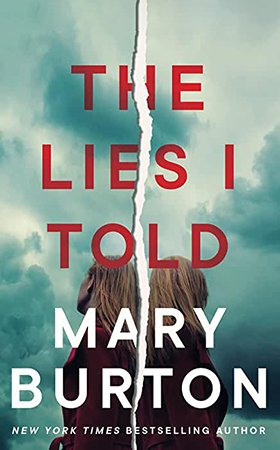
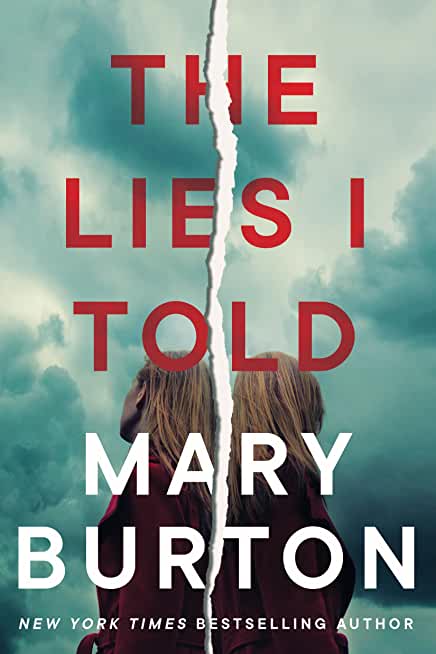
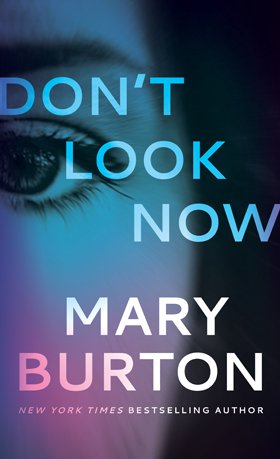
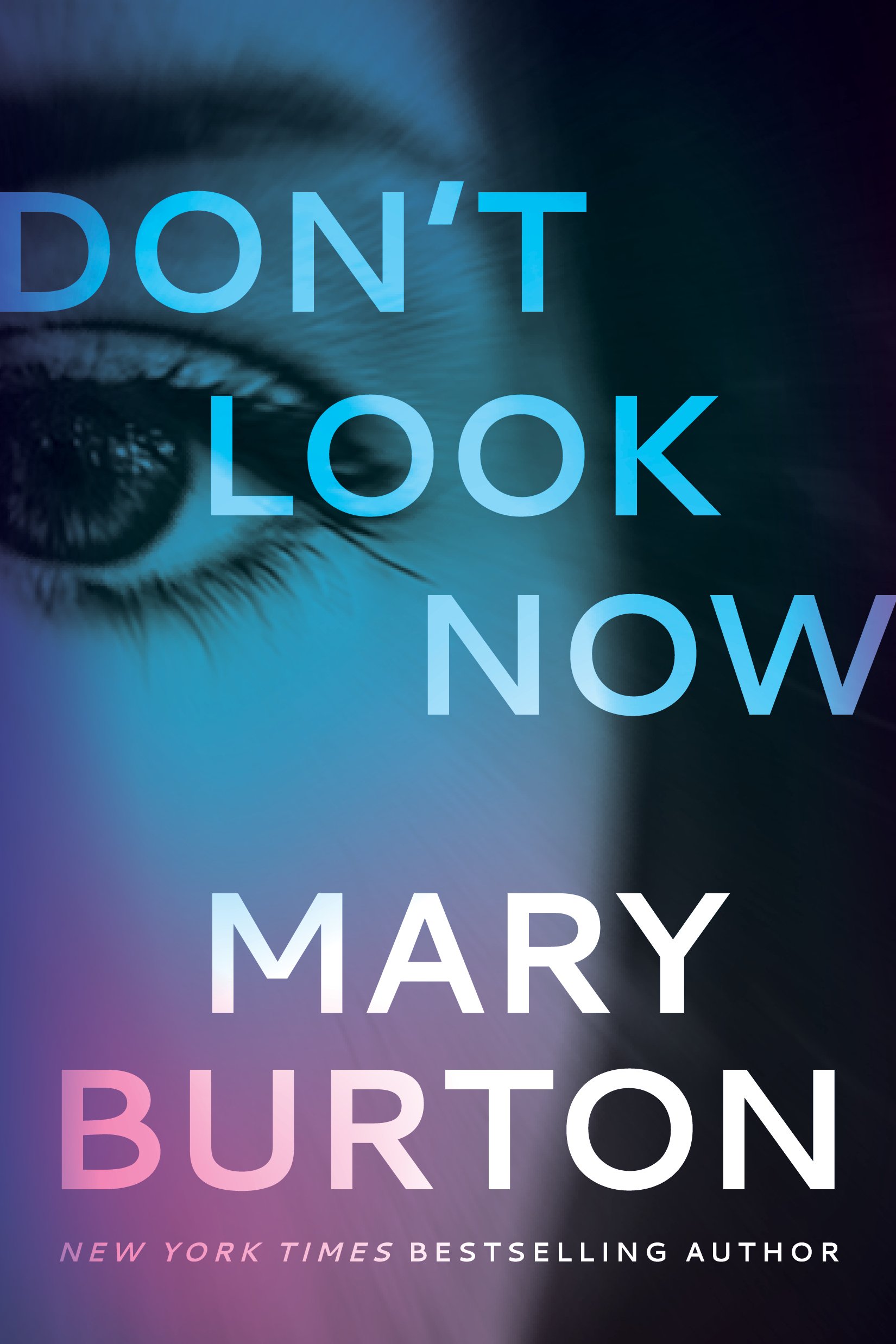
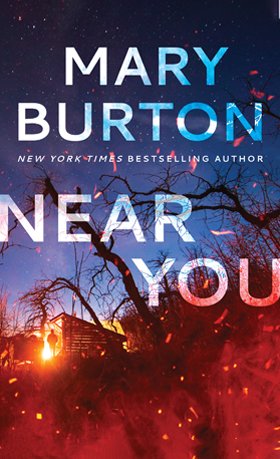
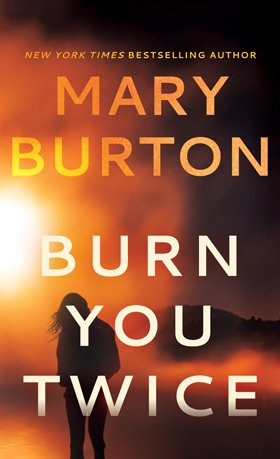
 Burn You Twice
Burn You Twice